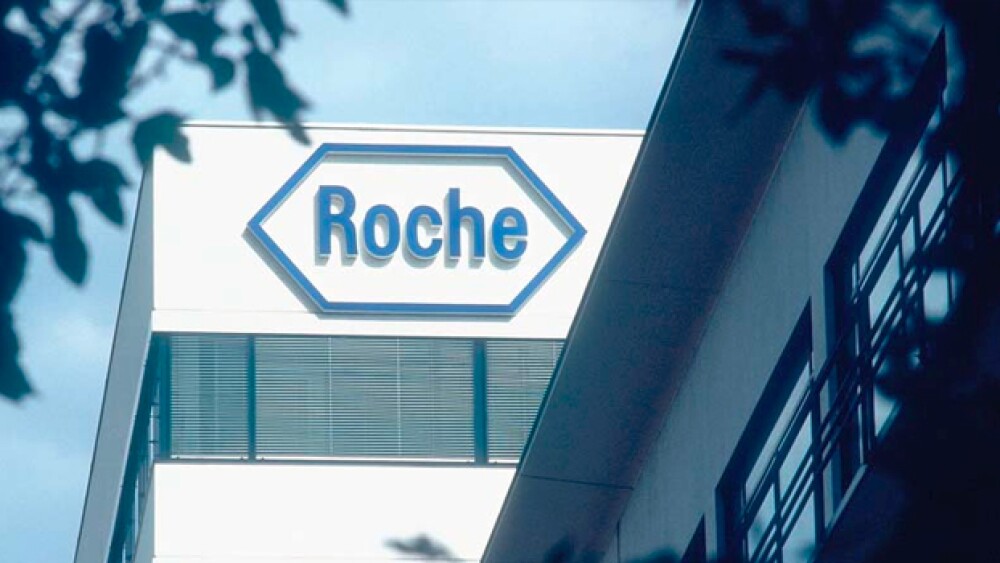Overall, the Swiss-based Roche announced a group sales increase of 7 percent, with the Pharmaceuticals Division up 7 percent, largely driven by sales of Ocrevus, Perjeta, Alecensa and Tecentriq.
It’s not uncommon for biopharma companies to ditch early-stage drugs from their pipelines, nor is it uncommon for them to bury the news deep in their quarterly reports. That was definitely the case of Roche, who announced their third-quarter financials today.
Overall, the Swiss-based Roche announced a group sales increase of 7 percent, with the Pharmaceuticals Division up 7 percent, largely driven by sales of Ocrevus, Perjeta, Alecensa and Tecentriq. The Diagnostics Division sales grew by 6 percent on the backs of its immunodiagnostic solutions.
And the company remains optimistic for the entire year, project 7 percent or greater overall, with the Pharmaceutical Division projected more than 13 percent in the U.S. and an overall 7 percent increase. Sales for the Pharma Division are expected to be down 2 percent in Europe, however.
“In the first nine months of the year, both our Pharmaceuticals and Diagnostics Divisions achieved very strong sales growth,” stated Severin Schwan, Roche’s chief executive officer. “The uptake of our new medicines continued to be strong in the third quarter. I am also very pleased that following the recent additional FDA approval, Hemlibra is now broadly available in the U.S. for people with hemophilia A. Based on the performance in the first nine months of the year, we will achieve our full-year targets.”
But the company is also cleaning house a bit, eliminating a total of eight pipeline programs. In many cases, it means it won’t have to pay out various milestone payments to companies it licensed the products from. The most advanced is RG1569 for systemic sclerosis, which was in Phase III.
RG6125, an anti-cadherin 11 antibody that was in a Phase II clinical trial for rheumatoid arthritis last year, was abandoned. The company picked up the drug in 2015 when it acquired Adheron Therapeutics for $105 million upfront.
RG6125 was the only Phase II pipeline drug to be dropped. In its Phase I pipeline, abandoned programs include RG6029, a NaV1.7 inhibitor Roche licensed from Xenon Pharmaceuticals, which it acquired in 2011. Others include RG7741 it picked up from Array BioPharma and IL-13-IL-17 bispecific RG7990 that it licensed from NovImmune.
RG6069 was also dropped. It was being investigated for fibrosis. RG7155 was being evaluated with Tecentriq in solid tumors. RG7990 was being studied in asthma. RG6029 was being developed for pain. RG7741 was being studied in solid tumors. RG7155 was being evaluated with secrelumab in solid tumors.
The company noted that for the year-to-date, 90 percent of growth was driven by new products. That includes sales of Ocrevus, which is prescribed for two types of multiple sclerosis, and cancer drugs Perjeta, Alecensa and Tecentriq. These offset lower sales of MabThera/Rituxan and Tarceva.
In the U.S., sales were driven by Ocrevus, Herceptin and Perjeta. Ocrevus sales were driven by strong new patient demand, and Perjeta showed a whopping 30 percent increase of sales caused by approval for adjuvant treatment of patients with HER2-positive early breast cancer at high risk of recurrence.
The company also reported it’s been a good year for new approvals, with the U.S. Food and Drug Administration (FDA) approving Hemlibra for routine prophylaxis to prevent or reduce bleeding episodes in patients with hemophilia A without factor VIII inhibitors. Also, the FDA approved single-dose prefilled syringes for Xolair for allergic asthma and chronic idiopathic urticaria (CIU). And the FDA approved Actremra for active systemic juvenile idiopathic arthritis in patients two years or older.





